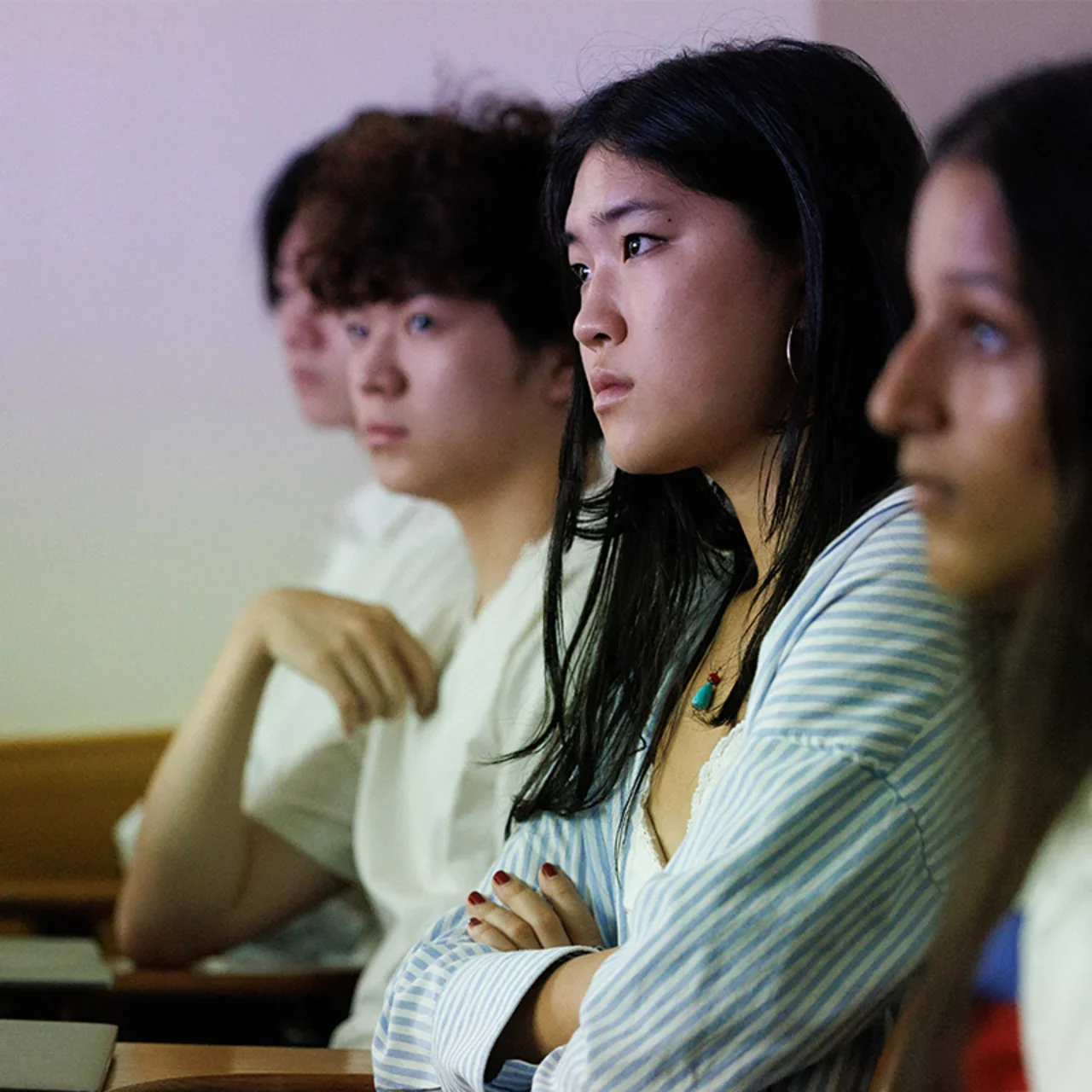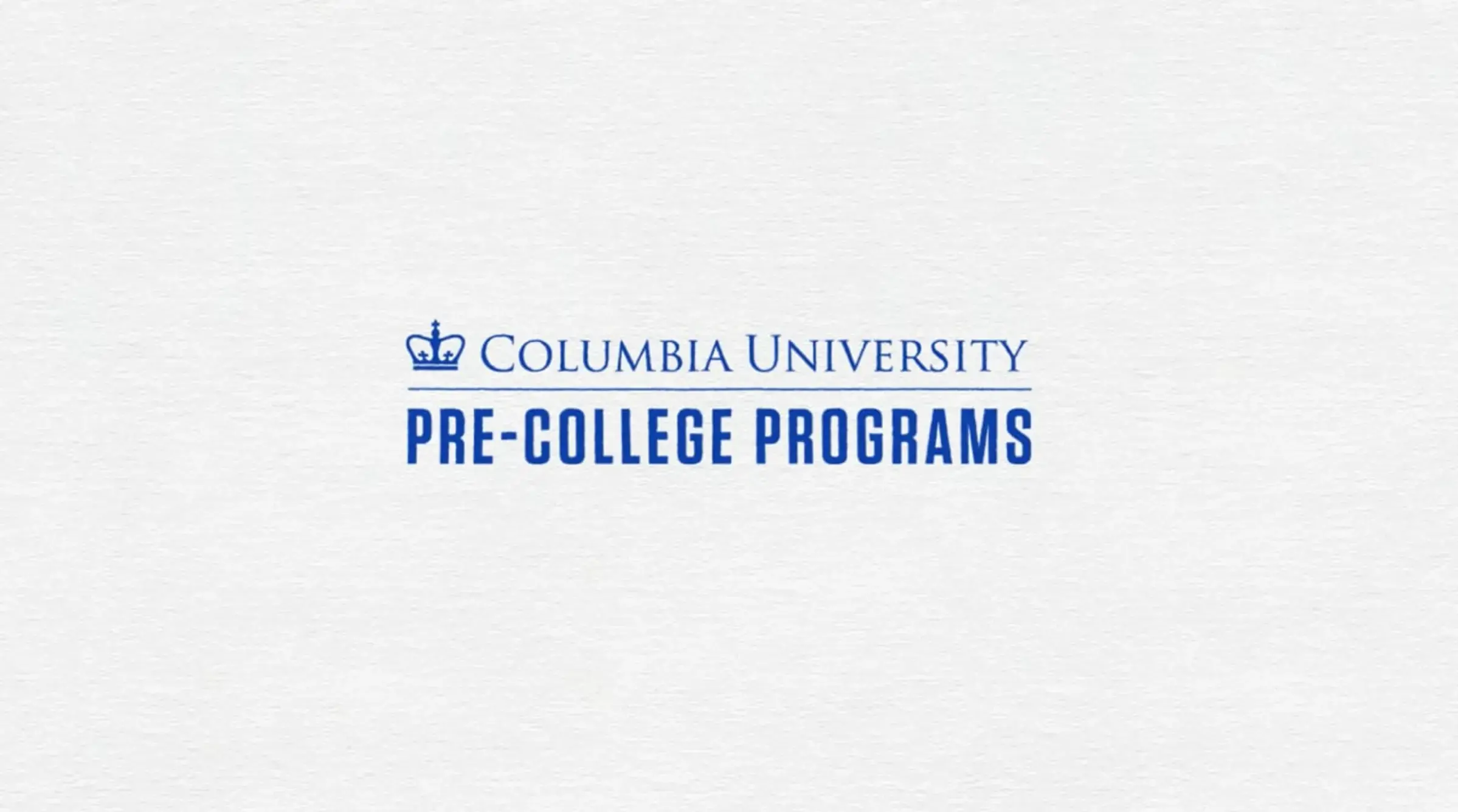
Have an Ivy League experience at home.
Session AA - 1 Week: June 22–June 26, 2026
Session A - 2 Weeks: July 6–July 17, 2026
Session B - 2 Weeks: July 20–July 31, 2026
Online Summer
Monday through Friday, students will join their virtual classrooms to refine their academic skills through a variety of activities—class discussions, debates, simulations, individual and group projects, Student Life workshops, and more.
Academics
“I have gained so much from this program, both academically and socially . . . and love Columbia for its collaborative environment and rigorous education."
– Allie T. | Issaquah, Washington

Courses

World-Class Instructors
Credentials
Upon successful completion, students will earn a Columbia University Certification of Participation and an evaluation letter reflecting their performance in the program to further set them apart in the college application process.
The Online Summer Program
Through Columbia's online interactive learning platform, students across the globe can engage with one another through rigorous curricular instruction, inclusive student life activities, and informative college success events.
Students in our 2-week program also have the opportunity to participate in the Columbia Writers Academy, an intensive 2-week course dedicated to help students craft and perfect powerful college application essays.

Learning Online

College Preparation
Daily Schedule
Classes in our 1-week program run from 10:00 am–12:00 pm, followed by a 1-hour break, with classes continuing from 1:00 p.m.–3:00 p.m. Our 2-week program runs from 8:00 a.m.–11:00 a.m., 12:00 p.m.–3:00 p.m., or 5:00 p.m.–8:00 p.m. ET. Individual student schedules will depend upon their course of enrollment. Since students self-register for courses, they will choose a course that works best for their schedule. Most, but not all courses, follow the schedules listed below. All courses are offered in Eastern Time.
1-Week Online Schedule

2-Week Online Schedule A

2-Week Online Schedule B

2-Week Online Schedule C

Summer 2026 Program Costs
Program costs are subject to Board of Trustee approval and may change.
1-Week Online Program Cost: $2,867 per session
2-Week Online Program Cost: $4,017 per session (single course registration)
Each amount above includes the fee for the course itself along with activity, health services, and technology fees. Students accepted into the 2-week online program are permitted to take more than one course. Each additional 2-week course costs $3,850. The non-refundable $1,000 deposit, due upon notification of acceptance is credited toward the cost.
Not included are the application fee ($80) and varying course-specific fees. Students are advised to budget at least $50 toward course materials, such as textbooks and supplies. Any required course materials will be listed at the bottom of the relevant course page.
Program Options
- Session AA - 1 Week: June 22–June 26, 2026
- Session A - 2 Weeks: July 6–July 17, 2026
- Session B - 2 Weeks: July 20–July 31, 2026
